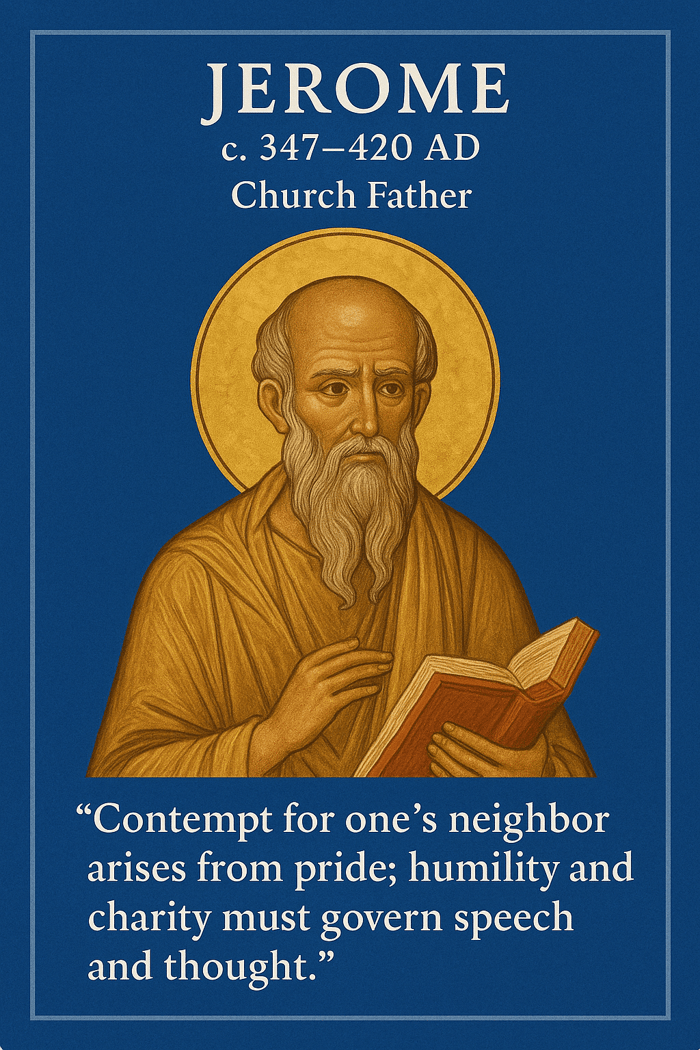Table of Contents
What is the definition of scorn?
Scorn definition: Scorn means to mock or treat with contempt or dishonor. When it comes to God, He should be treated with honor and fear, not with disdain and scorn. In the Bible, being scornful with regards to God and His Word is a sin and a scorner is an abomination according to Proverbs 24.
Other Definitions Of The Word Scorn
- Scorn means Prideful dishonor of God and His people
- Scorn means To Lack Knowledge of the Things of God through willful disobedience
- Scorn means To find joy in the dishonor of the righteous
- The word scorn means To Deride
- To Mock God and His people is to scorn them
- Scorn means to treat the righteous with contempt.
- Scorn means to be purposefully wicked
- Scorn can mean intense dislike
- Scorn is extreme contempt
- Scorn is disdain For Just And Right People and things
- Scorn is angry Mockery of The Upright
- Scorn means to denigrate
- Scorn also means to treat with disrespect
- Scorn means To be irreverent with the holy.
- Scorn means to refuse advice or an offer because you are too proud
- Scorn can mean to show that you think (someone or something) is not worthy of respect or approval
- Scorn means Open disrespect for someone or something
- Scorn can also mean to refuse to do something, as beneath oneself
- Scorn is to feel or display contempt or disdain for something or someone, most notably, for God.
Brief History of The Word Scorn
Scorn is a Middle English word, from the Anglo-Old French escharne, escar. The word scorn is also of Germanic origin; akin to Old High German scern jest
Key Hebrew Term: לִיץ (lûts) — “to scorn / mock”
Usage:
Often associated with pride, arrogance, refusal to learn, and resistance to correction — especially in Proverbs.
Most Common Translation: “Scorner / Scoffer”
A scorner is someone unteachable, who rejects wisdom and correction.
Verse Meaning Proverbs 9:7 Scorner hates correction Proverbs 13:1 Scorner refuses discipline Proverbs 14:6 Scorner seeks wisdom but finds none Proverbs 19:25 Scorner must be punished for others to learn Proverbs 21:24 The scorner is driven by pride & anger
Lûts = rebellion against wisdom.
It is not only mockery but moral arrogance against God.
Greek Septuagint Equivalent (LXX)
The Hebrew lûts is usually translated as:
Hebrew Greek (LXX) Meaning לִיץ μυκτηρίζω (muktērízō) To sneer, mock, turn up the nose לִיץ ἐμπαίζω (empaízō) To ridicule, shame publicly בּוּז καταφρονέω (kataphroneó) To despise, consider nothing
New Testament Connection
The NT continues this theme — “scorn” becomes spiritually dangerous:
Greek Word Meaning NT Usage μωκτήριον (moktērion) Scorn / sneering Luke 16:14 ἐμπαίζειν (empaizein) To mock Christ Matthew 27:29 ἐξουθενέω (exoutheneó) To despise / treat as worthless Luke 23:11 καταφρονέω (kataphroneó) To look down on Matthew 6:24 μυκτηρίζω (muktērízō) “To turn up the nose” — mock Galatians 6:7

Church Fathers on Scorn / Contempt
Church Father Quotation or Summary Context / Notes John Chrysostom
(c. 347–407 AD)
Source: Homilies on Matthew Warns against judging and despising others: “Do not despise your brother, nor let your heart be lifted up in pride. He who scorns another scorns God Himself.” Scorn is a manifestation of pride; Christians must practice humility and compassion. Augustine of Hippo
(354–430 AD)
Source: City of God, On Christian Doctrine “We must hate the sin but not the sinner; to scorn one’s neighbor is to fall into self-righteous pride.” Distinguishes righteous judgment from contempt; scorn is spiritually dangerous. Gregory the Great (Pope Gregory I)
(c. 540–604 AD)
Source: Morals on Job, Pastoral Rule “Do not deride or scorn your brother in error; rebuke with love, lest you wound his soul.” Emphasizes pastoral responsibility; scorn is harmful to both community and individual soul. Clement of Alexandria
(c. 150–215 AD)
Source: Stromata “The proud man despises others and looks down with contempt; let the Christian guard against all such arrogance.” Scorn arises from pride; humility is the antidote. Basil the Great
(c. 329–379 AD)
Source: Letters and Ascetic Treatises Advises monastics: “Do not treat a brother with contempt over small faults; correction must be gentle.” In monastic communities, scorn damages relationships and spiritual life. Pseudo-Macarius / Macarius the Egyptian
(4th century AD)
Source: Sayings of the Desert Fathers “Do not think anything bad in your heart toward anyone; do not scorn the man who does evil.” Ascetics are urged to avoid contempt; cultivate internal restraint and humility. Origen of Alexandria
(c. 185–253 AD)
Source: Commentary on Matthew Origen warns that contempt for others reveals spiritual immaturity; humility requires mercy and patience. Scorn interferes with spiritual growth and Christian charity. John Cassian
(c. 360–435 AD)
Source: Conferences, Book V “The monk who despises his brother in thought or word has already fallen into the snares of pride; humility must govern all interactions.” In monastic life, scorn is an inner sin leading to other vices. Ambrose of Milan
(c. 340–397 AD)
Source: Letters and Sermons “Despising a brother in any matter is incompatible with Christian charity; let correction be done with love.” Treats scorn as a spiritual vice, particularly in pastoral care. Jerome
(c. 347–420 AD)
Source: Letters “Contempt for one’s neighbor arises from pride; humility and charity must govern speech and thought.” Focuses on moderation and guarding the heart against arrogance. Ephrem the Syrian
(c. 306–373 AD)
Source: Hymns and Commentaries “Those who scorn others are like thieves of the soul; judgment must be tempered with love.” Literary and poetic treatment of contempt as spiritually destructive. Theophilus of Antioch
(c. 181–185 AD)
Source: To Autolycus “He who scorns another has forgotten that all men are made by God; scorn blinds the heart to divine image.” Early Greek patristic reflection on scorn as spiritual blindness. Cyril of Alexandria
(c. 376–444 AD)
Source: Commentaries on the Gospel “Contempt for another’s failings is pride; meekness and patience must prevail.” Emphasizes humility in theological and pastoral teaching. Hilary of Poitiers
(c. 310–367 AD)
Source: On the Trinity, Letters Warns that deriding others stems from pride and leads away from God’s grace. Scorn is an obstacle to proper spiritual life. Leo the Great (Pope Leo I)
(c. 400–461 AD)
Source: Letters, Sermons “Let no bishop scorn the faithful; correction must be gentle, lest pride corrupt the soul of the overseer.” Scorn in leadership is condemned; charity must accompany authority.
Scriptures That Define Scorn
Proverbs 1:22 “How long will you gullible people love being so gullible? How long will you mockers find joy in your mocking? How long will you fools hate knowledge?”
- Proverbs 29:8-9 “Scornful people inflame a city, but those who are wise turn away wrath. If a wise person goes to court with a foolish person, there is no peace whether he is angry or laughs. Bloodthirsty people hate someone with integrity; as for the upright, they seek his life.”
- Proverbs 21:10-11 “The appetite of the wicked desires evil; his neighbor is shown no favor in his eyes. When a scorner is punished, the naive becomes wise; when a wise person is instructed, he gains knowledge.”
More Scorn Bible Verses That Share The Meaning
- Proverbs 24:8-9 “The one who plans to do evil will be called a scheming person. A foolish scheme is sin, and the scorner is an abomination to people.”
- Proverbs 3:33-34 “The LORD’s curse is on the household of the wicked, but he blesses the home of the righteous. Although he is scornful to arrogant scoffers, yet he shows favor to the humble.”
- Proverbs 19:28-29 “An evil witness makes fun of fairness, and wicked people love what is evil. People who make fun of wisdom will be punished, and the backs of foolish people will be beaten.”
What Else Does The Bible Say About Scorn and How To Definite It?
Romans 2:8-9 “But for those who are self-seeking and who reject the truth and follow evil, there will be wrath and anger. There will be trouble and distress for every human being who does evil: first for the Jew, then for the Gentile.”
Proverbs 13:1 “A wise son accepts his father’s discipline, but a scoffer does not listen to rebuke.”
- Psalm 44:13-16 “You have made us a reproach to our neighbors, the scorn and derision of those around us. You have made us a byword among the nations; the peoples shake their heads at us. I live in disgrace all day long, and my face is covered with shame at the taunts of those who reproach and revile me, because of the enemy, who is bent on revenge.”
- Job 16:10-11 “People have opened their mouths against me, they have struck my cheek in scorn; they unite together against me. God abandons me to evil men, and throws me into the hands of wicked men.”
More from Biblical scholars on scorn:
| Scholar & Source | Paraphrased Interpretation | Scriptural Reference |
|---|---|---|
| John Chrysostom (c. 347–407) Homilies on Romans | Scorn is a manifestation of pride and hard-heartedness, rejecting both God’s law and the authority of spiritual leaders. It destroys humility and leads to moral decay. | Rom 2:24 |
| Theodoret of Cyrus (c. 393–458) Commentary on 1 Corinthians | Scorn reflects a heart that despises correction and instruction. It opposes both fellowship and moral development. | 1 Cor 4:14 |
| Ambrosiaster (4th cent.) Commentary on Paul’s Epistles | Scorn is contemptuous treatment of the divine and of others’ spiritual progress. It signals inward hardness that resists reform. | Gal 4:16 |
| Augustine of Hippo (354–430) City of God; Sermons | Scorn springs from envy and self-exaltation, regarding others’ good as unworthy. Humility, he says, is the cure for contemptuous judgment. | 1 Thess 5:15 |
| Thomas Aquinas (1225–1274) Summa Theologica II–II, Q.33 | Scorn is the contemptuous rejection of persons or divine authority. It is a sin of pride that obstructs charity and obedience. | Rom 11:22 |
| Nicholas of Lyra (1270–1349) Postillae Perpetuae | Scorn is the expression of inward disdain and moral superiority. It endangers one’s own virtue while seeking to belittle others. | 1 Cor 4:8 |
| John Wycliffe (c. 1328–1384) Commentary on Galatians | Scorn is a spiritual arrogance that mocks correction. It alienates the heart from grace and damages communal unity. | Gal 4:16 |
| Desiderius Erasmus (1466–1536) Annotationes in Epistolas Paulinas | Scorn, he writes, is a contemptuous attitude toward God or neighbor, often cloaked in irony. It undermines genuine charity and piety. | 1 Cor 4:8 |
| Martin Luther (1483–1546) Lectures on Romans | Scorn arises from unbelief and pride, showing contempt for God’s ways. It hardens the heart and separates one from divine favor. | Rom 2:24 |
| Philip Melanchthon (1497–1560) Loci Communes | Defines scorn as the expression of moral disdain toward others’ conduct or spiritual authority. It is a sin of the mind as well as speech. | 1 Thess 5:15 |
| John Calvin (1509–1564) Commentary on 1 Corinthians | Scorn represents arrogance and self-exaltation in judgment of others’ works. It violates the law of love and weakens church unity. | 1 Cor 4:8 |
| Theodore Beza (1519–1605) Annotationes Maior | Interprets scorn as the heart’s mockery of spiritual authority and God’s grace. It produces division and contempt within the church. | Gal 4:16 |
| Cornelius à Lapide (1567–1637) Commentaria in Sacram Scripturam | Scorn is the willful undervaluing of God’s gifts and men’s merit. It is a mark of spiritual pride and obstinacy. | Rom 2:24 |
| Matthew Poole (1624–1679) Synopsis Criticorum | Scorn is the haughty dismissal of instruction or correction. It fosters discord and resists holiness. | 1 Thess 5:15 |
| Matthew Henry (1662–1714) Commentary on the Whole Bible | Scorn is disdainful treatment of the good or holy, often self-righteous. It blocks personal improvement and poisons fellowship. | 1 Cor 4:8 |
| John Locke (1632–1704) Paraphrase and Notes on Paul’s Epistles | Scorn indicates moral arrogance and rejection of guidance. It is a vice of reason inflamed by passion rather than controlled by faith. | 1 Cor 4:8 |
| J. A. Bengel (1687–1752) Gnomon of the NT | Scorn (kataphronéō) is contempt shown toward God’s word or faithful men. It is evidence of a proud and unrenewed heart. | 1 Cor 4:8 |
| John Gill (1697–1771) Exposition of the NT | Scorn is the outward expression of internal disdain. It mocks authority, injures fellowship, and reflects spiritual corruption. | Gal 4:16 |
| Philip Doddridge (1702–1751) The Family Expositor | Scorn is contempt toward correction, God, or neighbor. It poisons community life and darkens conscience. | 1 Thess 5:15 |
| John Wesley (1703–1791) Explanatory Notes upon the NT | Scorn is a vice of pride, showing contempt for God or His servants. True faith and love eradicate it from the heart. | 1 Cor 4:8 |
| Jonathan Edwards (1703–1758) Religious Affections | Scorn manifests as spiritual arrogance and mockery. It is opposed to the sweetness of humility and gratitude. | Rom 2:24 |
| John Fletcher of Madeley (1729–1785) Checks to Antinomianism | Scorn is the moral contempt of men or God, arising from pride. It hardens the soul and resists the Spirit. | Gal 4:16 |
| Thomas Scott (1747–1821) Commentary on the Holy Bible | Scorn is a contemptuous attitude toward holiness, God, or men. It produces division and resists moral reformation. | 1 Thess 5:15 |
| Charles Hodge (1797–1878) Commentary on 1 Corinthians | Scorn signifies prideful undervaluing of others’ gifts or spiritual labor. It is incompatible with Christian love and humility. | 1 Cor 4:8 |
| Albert Barnes (1798–1870) Notes on the NT: 1 Corinthians | Scorn is the expression of a proud, unconverted heart. It resists teaching and damages community harmony. | 1 Cor 4:8 |
| Hermann Olshausen (1796–1839) Biblical Commentary on the NT | Scorn is the disdainful rejection of moral or spiritual authority. It demonstrates unrenewed nature opposed to the Spirit. | Gal 4:16 |
| J. P. Lange (1802–1884) Lange’s Commentary on Galatians | Scorn arises from pride and contempt for God’s servants. It breaks unity and blocks the work of the Spirit. | Gal 4:16 |
| Henry Alford (1810–1871) The Greek Testament | Scorn, in Paul, is contemptuous attitude toward God or neighbor. It manifests internal pride and moral hardness. | 1 Cor 4:8 |
| John Eadie (1810–1876) Commentary on Galatians | Scorn shows moral disdain, rejecting instruction or God’s truth. It indicates spiritual immaturity and obstinacy. | Gal 4:16 |
| Frederic Godet (1812–1900) Commentary on Galatians | Scorn is the expression of prideful contempt. It resists correction and poisons spiritual fellowship. | Gal 4:16 |
| H. A. W. Meyer (1800–1873) Kritisch-Exegetischer Kommentar | Scorn is rejection of God or His Word with contempt. It signifies internal corruption of heart. | Rom 2:24 |
| Franz Delitzsch (1813–1890) Commentary on Galatians | Scorn is moral contempt against God’s commands or ministers. It hardens the soul and blocks growth in grace. | Gal 4:16 |
| Richard C. Trench (1807–1886) Synonyms of the NT | Scorn (kataphronéō) is disdainful evaluation of others’ works or God’s guidance. It contrasts with reverence and godly fear. | 1 Cor 4:8 |
| Charles Ellicott (1819–1905) Commentary on Galatians | Scorn is prideful disdain, despising correction or the holy. Only humility and love remove it. | Gal 4:16 |
| E. H. Plumptre (1821–1891) Cambridge Bible: 1 Corinthians | Scorn is a contemptuous attitude toward God’s Word and men’s labor. It damages both personal morality and communal fellowship. | 1 Cor 4:8 |
| William Kelly (1821–1906) Notes on 1 Corinthians | Scorn expresses spiritual pride and undervaluing of others’ work. Paul contrasts it with appreciation for divine gifts. | 1 Cor 4:8 |
| Brooke Foss Westcott (1825–1901) St. Paul and His Epistles | Scorn is contempt of spiritual authority or virtue. It shows a heart hardened against God’s Spirit. | 1 Cor 4:8 |
| Henry Parry Liddon (1829–1890) Lectures on Paul’s Epistles | Scorn is the haughty contempt of divine or human goodness. Humility and love are the antidotes. | Gal 4:16 |
| Marcus Dods (1834–1909) Expositor’s Greek Testament | Scorn is disdain toward God’s Word or men of faith. It is a moral and spiritual disease of pride. | Gal 4:16 |
| Hermann Cremer (1834–1903) Biblico-Theological Lexicon of NT Greek | Kataphronéō is contemptuous undervaluing of persons or authority. It is antithetical to love, faith, and piety. | 1 Cor 4:8 |
| Alexander MacLaren (1826–1910) Expositions of Holy Scripture | Scorn is prideful disregard for the moral or spiritual worth of others. Only love and humility correct it. | 1 Cor 4:8 |
| Joseph Parker (1830–1902) The People’s Bible | Scorn is moral contempt for God’s authority and human service. It destroys fellowship and spiritual growth. | Gal 4:16 |
| Alfred Plummer (1841–1926) Commentary on 1 Corinthians | Scorn is pride in action, expressing disdain for God or men. Paul calls believers to humility instead. | 1 Cor 4:8 |
| William Sanday (1843–1920) Cambridge Bible: Galatians | Scorn shows inward pride and contempt for instruction or virtue. It is the opposite of Christian reverence and unity. | Gal 4:16 |
| James Hastings (1852–1922) Dictionary of the Bible | Lists kataphronéō as contempt of persons, authority, or God. It undermines moral and spiritual life. | 1 Cor 4:8 |
We hope that you enjoyed this article on the meaning of scorn and put scorn and its cousins of pride and unrighteous anger out of your life in Jesus' Name.









